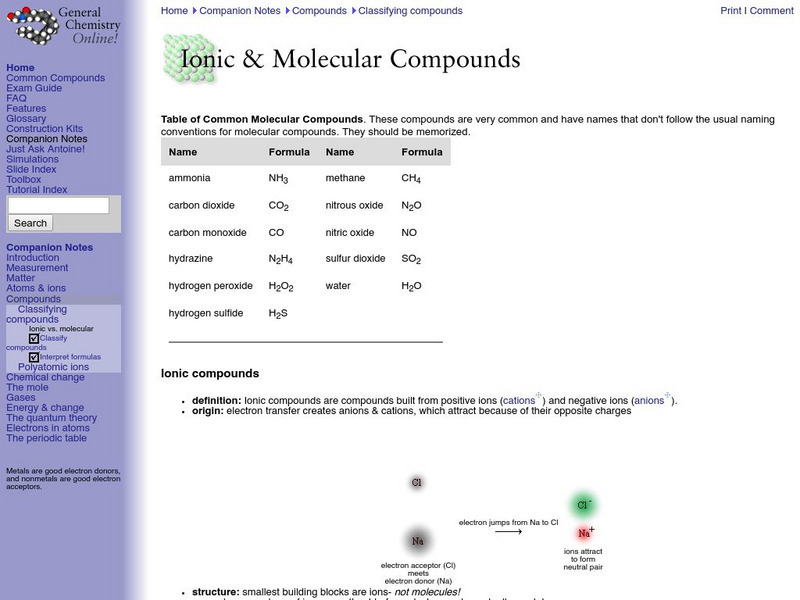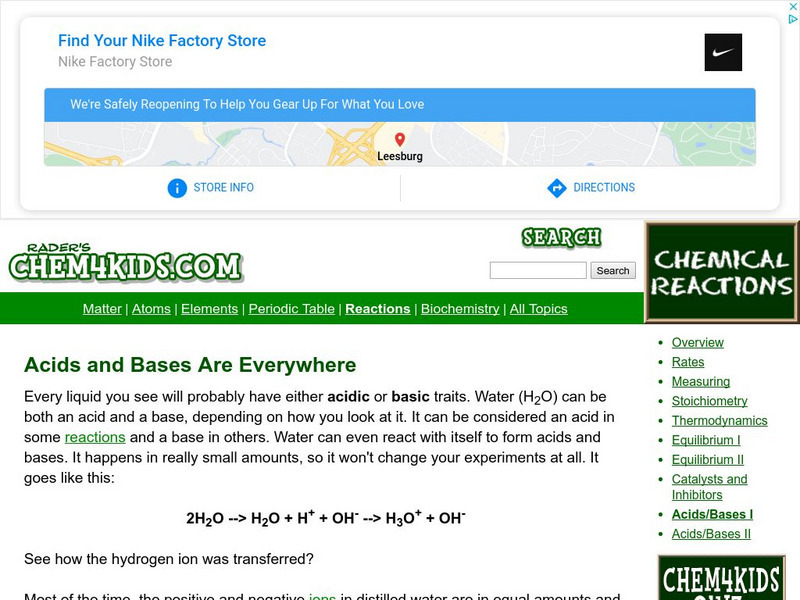It's About Time
Chemical Names and Formulas
Abracadabra! Provide your class with the tools to perform a chemical "magic show" as they predict the charges of various ions, determine ionic compound formulas, and make observations to determine when a chemical reaction between...
National Institute of Open Schooling
d-Block and f-Block Elements
Potassium permanganate, containing manganese one of the transition elements, has many uses such as mouthwash and propelling rockets, making it is a very diverse compound. The lesson delves into such transition elements and...
National Institute of Open Schooling
Chemical Bonding
Name is Bond, covalent bond. Through readings and answering questions, classes explore the different types of chemical bonds, their characteristics, valence shell electron pair repulsion theory, and atomic orbitals.
National Institute of Open Schooling
Solid State
Crystal comes from a Greek word meaning ice. Activity eight in a series of 36 has class members analyzing amorphous and crystalline solids and further classifying them based on their forces. They then explore solids, learning about unit...
Frostburg State University
General Chemistry Online: Ionic and Molecular Compounds
Provides a good outline of the concepts involved in ionic and covalent bonding, with links to definition of terms. Features a list of common molecular compounds and a chart that compares ionic and molecular compounds.
Ohio State University
Ohio State University: Electronegativity & Bond Polarity
Excellent graphics help this page explain the relationship between electronegativity and bond polarity.
Chem4kids
Chem4 Kids: Acids & Bases
This Chem4Kids site provides a general overview of acids and bases, and their use in chemistry. Content focuses on "names to know" and how acids and bases work.






